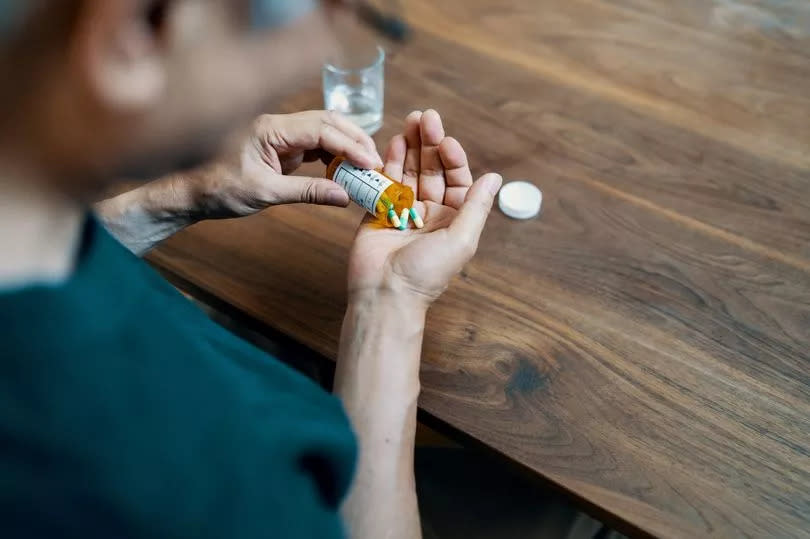Prescription medication shortage chaos as many people blame one thing

A new survey has revealed the devastating effect of disruption to the supply of prescription medication across the UK. A total of 49 per cent of 2,028 participants in a survey for the British Generic Manufacturers Association claimed they have experienced trouble getting medication dispensed over the last two years.
The long-running supply problems, which increased sharply over that period, have led many to blame Brexit for the situation - in fact, more than anything else according to the Opinium survey. The situation has become so dire that one in 12 Britons have gone without medication they needed despite going to several pharmacies in the hopes of filling their prescription.
Thirty one per cent of the participants found their medication was out of stock at their usual pharmacy, while 23 per cent noted the pharmacy did not have enough of their prescription to meet their needs. When the group was asked what they believed was behind the supply and distribution issues, 36 per cent pointed to Brexit as the cause.
Others stated inflation, global conflict or instability as potential causes - but BGMA chief executive Mark Samuels said multiple factors had caused the “deeply worrying” predicament, the Guardian reports. He said: “The Brexit agreement is definitely one of them.
“For example, medicines made here can’t be exported to Europe but those made on the continent can be brought here. This gives zero incentive to increase manufacturing capacity in the UK, a capability that could help with shortages.”
However, he also claimed that the “complacency” with which recent governments have treated the off-patent medicines industry also contributed and in the light of the upcoming General Election advised: “The next administration needs a targeted plan to encourage companies to continue to see the UK as a priority place to supply.”
The number of drugs in short supply has continued to rise since the start of 2022, where 52 products were in that category, while the number currently stands at 100, which has come down from an all-time high of 111 last October. This includes HRT, some antibiotics and medications for the likes of ADHD, epilepsy, diabetes and osteoporosis.
A total of 23 of these medications have been in short supply for longer than a year. The NHS Business Services Authority issued four “serious shortage protocol” notices last month and the shortage is not expected to end until next year due to a global supply issue in the medication industry.
Reach has contacted the Department of Health and Social Care for comment.

 Yahoo News
Yahoo News 
